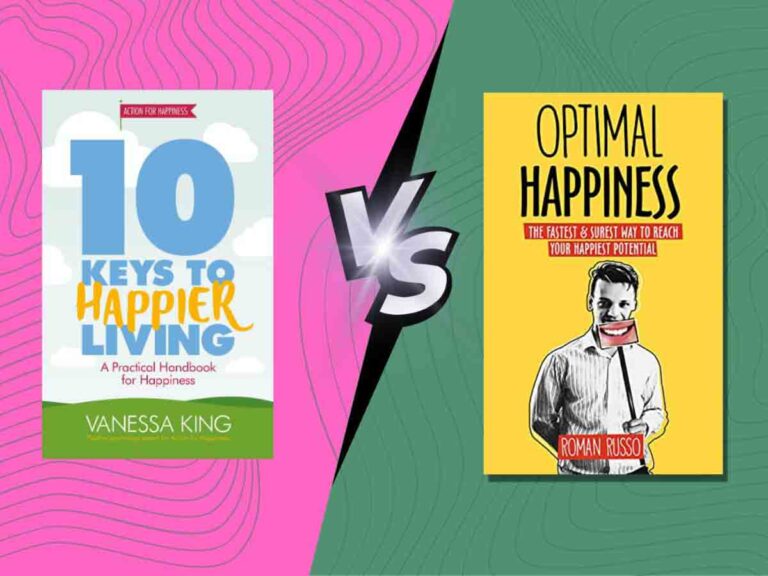
Give a man a fish, feed him for a day. Teach him how to fish, feed him for a lifetime.
This expression sounds true for what we are about to discuss, as often poor people end up in these terrible circumstances (and they are terrible) because of their inability to provide for themselves. And while we can offer them some money and feel good about ourselves for doing this, it is unlikely that this will be enough for them to leave their circumstances, simply because they are currently there.
In other words, if you were to ask a middle-class person what they would need to be in the middle class, they are likely to be able to give you a plan. Similarly, if you were to ask a millionaire to make another million from scratch, they are way more likely to do it, and to do it fast, compared to people who never had a million. A similar argument can be made that homeless people who are in these situations because they don’t have access to the correct tools that they can apply independently to solve these situations, and again a few dollars are unlikely to solve their overarching needs.
As such, when we say “don’t give money to poor people,” what we mean is not to stop helping them with their circumstances, as at best we are helping them survive for another day, but instead taking proactive steps to create opportunities to help many more people to exit these circumstances once and for all.
Instead, ideally, we should create mechanisms that would prevent poverty from ever happening in the first place, and if it still happens, to help people out of these circumstances, such as supporting homeless centers, social support centers providing homeless people with education and a plan to leave their circumstances, work opportunities that offer immediate income, food banks, and more.
Here, I realize that in some major cities around the world, there are camps of homeless people sleeping on the streets, while there are housing with waiting lists being offered to many different people, who don’t really need these solutions, as they are enjoying these houses for years, using them as free or cheap accommodation, meaning that the system is just not being used correctly. There are other reasons that these initiatives are ineffective, but this doesn’t mean that they are incorrect, and we should stop pursuing them, as well as giving homeless people an excuse to avoid these helping hands, while they say that they are in need of them.
Furthermore, it is important to consider that giving money to homeless people may actually perpetuate their cycle of poverty, as we will give them a so-called business model for continuing to stay poor. They start begging, and they never really consider ways to get out of poverty, as there are plenty of professional beggars in the world, as well as beggars who aren’t even homeless, but rather just scammers using your generosity for their personal ends.
Again, I’m sure that there must be some individuals in need of just a few dollars to help them get out of their situations, but these instances are more rare than common because homeless people often have bad financial habits that got them into bad spots in the first place.
Here, I realize that it is stereotypical and wrong to mention that if we give money to homeless people they will spend it to buy drugs and alcohol, as even non-homeless people are doing the same bad habits. However, it is true that “your kindness could lead to that person’s overdose,” as stated by one former homeless person, and instead “there are different ways you can help.”
To this extent, I saw one gentleman asking a homeless man what he needed. He didn’t offer him money, but instead offered concrete products that this homeless man could potentially need, such as food, water, and clothes. He could have simply given that man some money, felt good about himself, and called it a day, or just assumed he knew better, and bought whatever he thought that homeless man needed without asking. However, he still considered the homeless person’s needs and offered him everything but money, making sure that this person addressed some of his core needs.
Alternatively, we can donate straight to a charity that works with homeless people, as they can make that money go further, instead of helping 1 person, helping 5 or 10 instead! It is indeed a better long-term solution for everyone, as homeless people will start seeking help from such organizations, instead of trying to solve them themselves, as arguably they are unable to do it themselves in the first place.
Furthermore, until now, we have said that being poor and homeless is bad, and we have even mentioned these “terrible circumstances” as something undesirable. However, I have been to some very poor places on planet Earth today, and I have seen that people are not always as miserable as we portray them to be. In fact, many of those individuals actually appear to live better and happier lives compared to wealthier individuals in more affluent regions of the world.
Now, there are several theories for why this may be the case including that if someone is poor, they don’t want anything special or extra, and they are simply happy with what they have. In fact, they experience every moment more fully, meaning that they are present and “in the now” which is the central point of the definition of happiness – to live in the present, not the future, or the past. Conversely, here in the West, many wealthy people are miserable, not because they don’t have enough, but because they tasted the forbidden fruit, and now they want more and more, entering a rat race they can’t win, and therefore become perpetually unhappy.
Additionally, what we often think is “enough” to have a good life is often distorted, as people overpay for all sorts of things including accommodation, clothing, food, and virtually everything else for that matter, living from paycheck to paycheck, barely breaking free every month.
In this example, people often live beyond their means, choosing a YOLO experience of spending more money now, not really thinking or caring about the future, choosing to overpay for things like their accommodation, which sometimes exceeds 50% of their total income. Now, this is crazy and is an almost certain way to go broke, as no more than 30% is the recommended amount we should spend on accommodation.
Furthermore, many people eat out daily. However, with a little DIY mentality, we can cook at home and eat much healthier and spend less money, even going as far as growing our own food, which is even cheaper and not even that complicated. We can in a similar way make so many things ourselves instead of going to a shop and buying them, such as a handmade gift, which in a store can cost a small fortune to buy, but in reality, they can be created by hand for much cheaper, better, and with more care.
This is again an argument for giving money to charities instead of homeless people themselves, as these charities often use these DIY tools to make their resources go further than we and homeless people themselves could.
Furthermore, some of the happiest people in the world are also those without any possessions, such as spiritual people, who are incentivized to give up all their belongings to charity or the church. They state that God will provide for them, and somehow, he really does, and they are very happy because of that.
In this way, one of the most famous homeless people lived over 2000 years ago in Greece and we know his name to this date. He was Diogenes of Sinope, a philosopher, and a founder of Cynicism. One day he even threw his only bowl away when he saw a girl drinking from her hands, and when approached by Alexander the Great who offered him anything his heart could desire, money, women, and power, the only request Diogenes had was that Alexander the Great stopped covering the sun. Hearing this outrageous remark, Alexander the Great said that if he wasn’t Alexander the Great he would want to be Diogenes of Sinope.
These examples show that homelessness isn’t necessarily something bad as we are accustomed to believe it is, and the only reason we see it so is because most people want more and more money without an end, and when they see someone without it, they feel bad and sympathetic.
However, homelessness is by no means a death sentence, and in fact, we could all learn a thing or two from this lifestyle, such as minimalism, fasting, living in the moment, thinking twice about how much we actually need, thinking twice before buying anything, and considering what it really takes to survive, as many of these beliefs are erroneous, unfounded, and wrongly perceived by the general public.
Takeaways:
– Giving money to charities, as they are able to make that money go way further
– If you still want to help an individual, ask them what they need and buy that for them instead of handing them money
– Help create long-term solutions that remove people from the streets and prevent them from getting there in the first place
















13 thoughts on “Don’t Give Money To Homeless People”
I recently moved to a country where you see a lot of poverty.
I wanted to help children in poor areas who struggle with school and can’t afford support.
I thought people would be happy but when I asked around how to go about and where to find those children, people laughed at me calling me naive.
Poor kids don’t need education I was told. They won’t finish school anyways. Plus they work before and after school to just find some food, they don’t have time to get educated … I was shocked to hear that. From middle class people but from less fortunate ones themselves.
I asked them who they are to judge. if there is just one child that would love to learn, then I have done my part, but you are not even giving that one child the chance to speak up.
So I’m a little frustrated at the moment and trying to find ways how to make things work.
(If you believe in this) once I heard that every person has a different level of karma, and our vibrations match those of the world around us. This means that some people may vibrate at higher or lower levels. Applying this to poor people, they might be vibrating at a lower level, and even though we can be kind, positive, and helpful, we cannot force them to do better. They have to choose to improve themselves. They must work through their karma, as our location in life is a result of our karma. Your positive intentions are still appreciated, but in my opinion instead of helping individuals, it is more effective to work towards changing society or donating to organizations that are equipped to address these issues. Still, thank you for considering how you could make a difference!
Yes I suppose that is true. The energy you create around you will create the things and people you will attract. I noticed that when I started to change myself that suddenly a different kind of people came into my life. It was quite impressive to see.
I reached out to some locals to come up with a bigger project together and we started working on it. I hope it’ll all work out in the end. There is still so much to do!
When I hear “I hope it’ll all work out in the end,” my feeling is one of turbulence and uncertainty. In terms of the energetic field, this means that you are inviting that energy. A better approach to life is to be absolutely certain and positive about everything, almost to a delusional state. Everything you believe in must be true because you willed it to be. Like Steve Jobs with his “reality distortion field,” you, too, need to believe that whatever you touch will turn to gold, if not now, then eventually and act accordingly. In turn, the universe will have no choice but to give you the best life possible because that’s your vibrations and what you attract.
Furthermore, when you say, “I noticed that when I started to change myself, suddenly a different kind of people came into my life,” I think you should try pushing this even further to see how further you can increase your vibrations. Sometimes you may be surprised to discover that you are just scratching the surface and there is so much more life you can experience. Give it a shot and let me know if it works!
You are right. I didn’t notice I did that. Yes I’m very uncertain … A learned pattern from the past. But that’s a different topic.
But you are reminding me of something. Thank you for that. I really appreciate it :)
Happy to help! When it comes to the way people speak, I’ve become like a hawk, listening closely to whether someone’s words are framed positively, negatively, or in a “maybe” way. Naturally, we should try to reframe everything in a positive light whenever possible. If you can do this, I promise you that you will experience a great transformation in your life. Happiness guaranteed, haha!
Finally someone said it. I completely agree with this article.
The first time I heard this opinion piece, I had the same reaction. :)
Agreed
Can’t agree more. Nice article. I like the part about happiness. The perception of happiness is different for everyone, and somehow most of us end up chasing the wrong things.
I was just talking to someone about the fact that happiness is the #1 goal in life. As such, we can always discuss nearly anything from the perspective of how much happier or sadder it makes us. The best part is that this topic is always relevant, interesting, and timely, as happiness is relevant and interesting to everyone. Ultimately, the trick is to distinguish the truth from falsehood and happiness from unhappiness, as you said, there are too many people looking for happiness in all the wrong places and later being surprised that they are still unhappy. Thank you again for your support!
Sorry Russo, but ironically that’s one thing that’s definitely not true. If you needed to be certain 24/7 all year round every year of your life to profit, that’s not good news. In fact, that’s a limiter to what you can experience in life. Fortunately, it’s not true. Bad things can happen without at least some vigilance, and caution/wisdom is still necessary and does not get in the way of happiness.
We are allowed moments of weakness. Faith and magnetism is good, of course, generally speaking necessary to succeed as well to live and thrive in general. But it’s not an end all be all. The idea is that things will be all well even if you yourself lose faith and your mind is faltering/wavering. That’s the whole purpose behind the existence of God and/or a spirituality of depending on something outside of you: so that you may learn interdependence, and so you may relieve yourself of your own self at times which is often turbulent.
If anything, you should believe not for some outcome but for yourself. Focused faith is good for the psyche after all. I’m just saying you don’t have to believe you have to be sure all the time to bring the best external results. Otherwise, we can’t see people rising out of a pit of chaotic spiritual abyss, and/or good things happen to people in desperation. We do though. Often.
If I read your other works correctly, I’m sure you’d understand.
Thank you for this feedback. As I always say, there are never absolutes, and the truth is always somewhere in the middle. So when I say “don’t give money to the poor,” it shouldn’t be taken as “never ever never.” There is naturally some truth to the opposite point of view, and that’s my point.
As for “bad things can happen without at least some vigilance,” there are ways we can try to minimize these risks. And even when stuff happens, there are still solutions available. And if no solution can be found, well, it’s life, and we have to accept it the way it is. Therefore, we should always aim for the best, prepare for the worst, and play the cards we are dealt.
Regarding God, I agree. However, I purposefully didn’t delve too deep into this topic in this blog post. Technically speaking, we can always discuss things from the point of view of God, and some authors do that. But personally, I prefer to take a balanced approach and discuss any topic from different points of view.